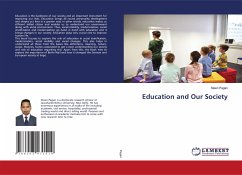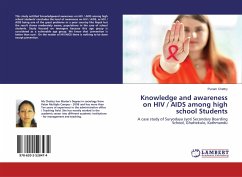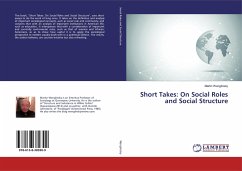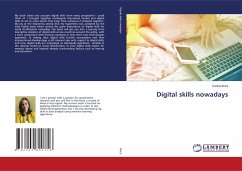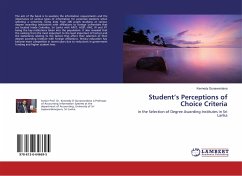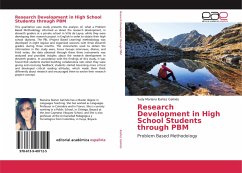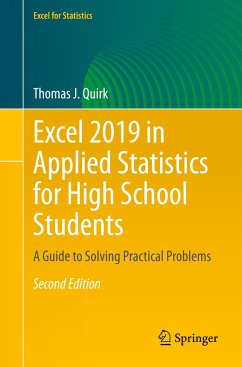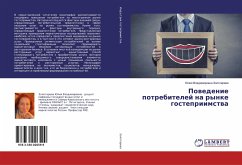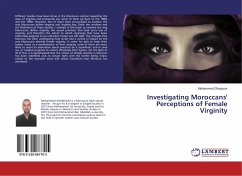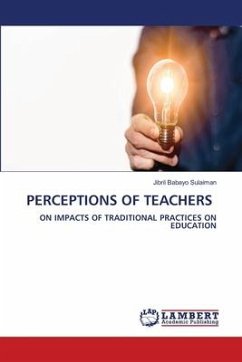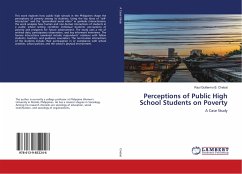
Perceptions of Public High School Students on Poverty
A Case Study
Versandkostenfrei!
Versandfertig in 6-10 Tagen
37,99 €
inkl. MwSt.

PAYBACK Punkte
19 °P sammeln!
This work explores how public high schools in the Philippines shape the perceptions of poverty among its students. Using the key ideas of "self-interaction" and the "generalized social other" in symbolic interactionism, the work analyzes how human and non-human interactions of students in a public school setting condition individual students' perceptions of poverty and prospects for future advancement. The study uses a mix of archival data, participatory observation, and key informant interviews. The human interactions examined include respondents' relations with fellow students, teachers, and...
This work explores how public high schools in the Philippines shape the perceptions of poverty among its students. Using the key ideas of "self-interaction" and the "generalized social other" in symbolic interactionism, the work analyzes how human and non-human interactions of students in a public school setting condition individual students' perceptions of poverty and prospects for future advancement. The study uses a mix of archival data, participatory observation, and key informant interviews. The human interactions examined include respondents' relations with fellow students, teachers, and guidance counselors. The non-human interactions of the students include their participation in or compliance with school activities, school policies, and the school's physical environment.



